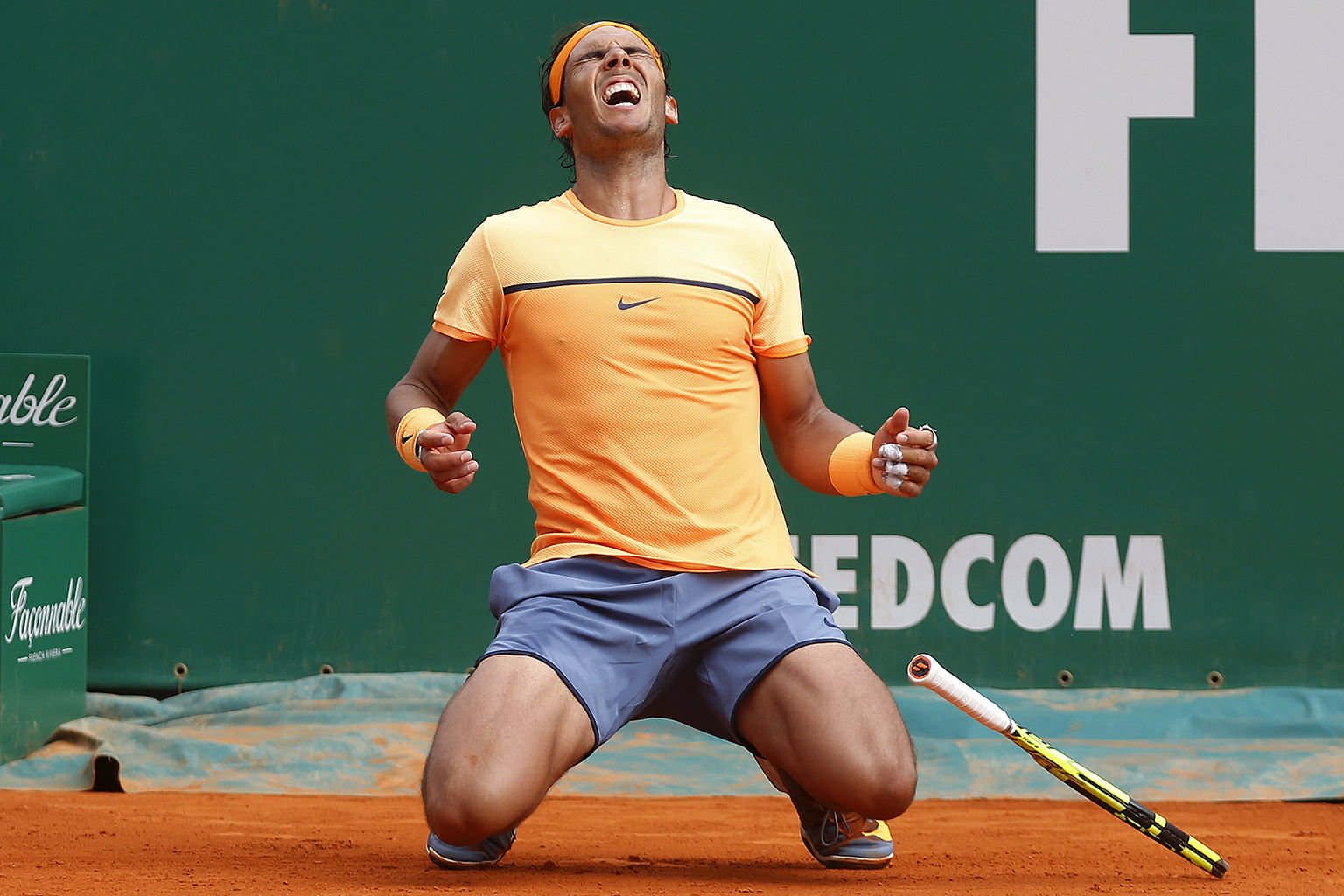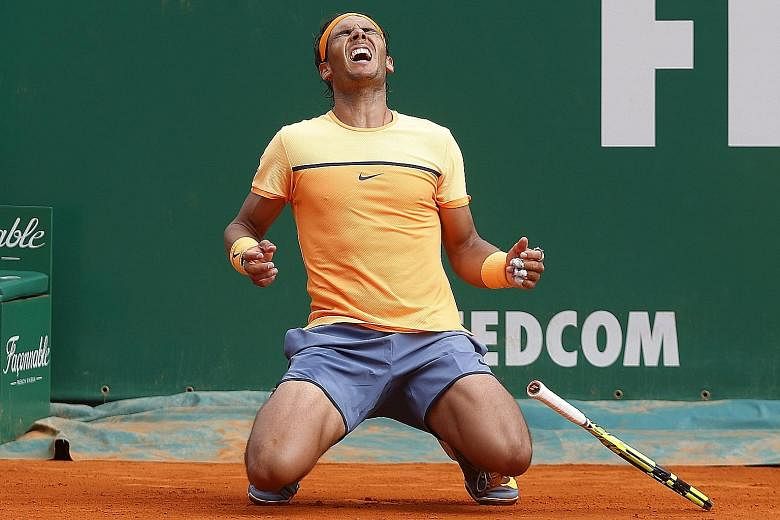The struggling athlete, once great, doesn't want you to know precisely how he feels. He doesn't owe you the absolute truth. You might notice his elastic build or fine technique, but his insecurity is buried out of view. You don't see the uncertainty, the nights with no sleep, the worn body. That's his business.
The struggling athlete hasn't won and it's gnawing at him because what else is his purpose. Luke Donald was world No. 1 in 2012 and yet has not won on the US PGA Tour since then. The Bryan brothers won 16 men's doubles Grand Slams between 2003 and 2014 and have stuttered thereafter. Pressure builds like a hand at the throat. Wayne Rooney scored in 2015 after a barren run of 878 minutes and said: "If I didn't have a strong character, that may have affected me."
Everyone will win a last medal and score a final goal. But there's no warning when, no due date, no guarantee it hasn't already passed. With every passing month, doubt grows like a tumour but the idea of no more victories is unacceptable to the athlete. In 2002, three years after his seventh and last world title, snooker legend Stephen Hendry said: "When my head is right I can still win." At 50, the boxer Evander Holyfield told a US website: "I just know I can win."
The struggling athlete is tuned to a wavelength foreign to us for he can be beaten and yet he'll believe. Hope is his hymn. He'll go back to an old coach or find a sign in someone else's comeback. He'll hear stories of Mirjana Lucic-Baroni, who won a WTA tennis title 16 years and four months after her last one, and now of badminton's Sony Dwi Kuncoro, who won a SuperSeries title on Sunday six years after he last did.
The Indonesian is 31, wears a back brace, has had more injuries than Nick Kyrgios has had fines, and I asked him what was the first thing that went through his head on victory.

"That I can still win."
Proof. Reassurance. Relief.
All this is on Rafael Nadal's face as he howls in victory and bends to touch his head to his favourite dust in Monte Carlo. Anything is possible in sport, even such a day when "Nadal wins title on clay" is considered a momentous headline. This Masters title took roughly two years to come and ended with a match against Gael Monfils which finished 6-0 but was still a classic. Thirty-four break points, 13 breaks, 53 winners, 13 litres of sweat, uncountable momentum swings, endless ovations.
A tired Monfils leaned on his racket between points like a geriatric in coronary distress and then took off like Zephyrus, who was the Greek god of the west wind and also of spring. This was appropriate because there seems a fresh resolve to Monfils, who parried and rallied and hit winners at 171kmh with the artful disdain of a man swatting flies.
But Nadal was not so much impenetrable as unyielding. Sweat sliding down his nose, the Spaniard with his scowl can bring a smile. In a month of Twenty20 cricket and rugby sevens, life lived in a skilful rush, he stands for an old-fashioned virtue.
Patience.
At his best, there's still a painstaking perfection to him. He waits and builds a rally like a labourer with a warehouse of bricks. He waits for the short ball then turns his shoulder into forehands like a boxer into a punching bag. He's won nine times in Monte Carlo, a town of famous casinos, by keeping gambling to a minimum. He waits till he wears you down and people don't lose to him, they surrender. Both Monfils and Dominic Thiem would hand sets to him with double faults. As if to say, enough, senor.
It seems like old times, but no one goes back in time in the athletic business. The past is a younger country in sport and Nadal is 44 days from turning 30. Then he was a top-spinning Thor on clay, now his fallibility makes him more interesting.
In three matches against Thiem, Andy Murray and Monfils, he gave up 41 break points. He won only 29 per cent of second-serve points versus Monfils, was left flat-footed by Theim's hitting and makes errors which once were not permissible. But this is his examination: not to find his old, perfect game but to stay relevant with his new, flawed one.
There seems to Nadal a sort of damaged beauty. Even as he won't relent, and he runs, you wonder not just of his will but of his knees. By refusing to bend the first, one day the other must buckle.
But it's the only way he knows and he must be admired for he has not stopped giving chase to his ambition. We always say athletes have no time and yet he has taken his time. You can't rush form or hurry rehab or hasten confidence. For him it is not long matches but this which he has had to endure.
Of course this is only Monte Carlo and we must see what distance he travels in the draw in Barcelona, Rome, Paris and how far he journeys against Novak Djokovic. But at least he is armed with the most stirring four-word anthem in sport.
I can still win.


